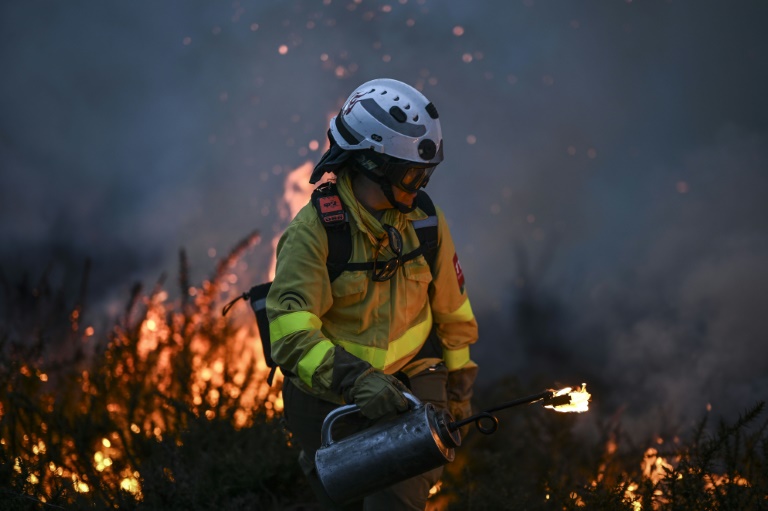
LISBON, Feb 9 (NNN-AGENCIES) — Women from around the world gathered in northwest Portugal this week to practise a traditional technique of deliberately burning land to prevent the kind of wildfires – intensified by climate change – that have killed hundreds across Europe.
In the hills above the Portuguese town of Paredes de Coura, women used drip torches to set fire to thorny patches of scrubland, creating grazing areas for livestock.
“What these women are learning here is essentially the use of traditional fire. The fire that our ancestors used to renew the pastures and also as a means of controlling combustible materials,” says Cristina Azurara, northern regional coordinator for the Portuguese fire-management agency AGIF.
Wildfires killed more than 100 people in Portugal in 2017 and burned through hills covered in pine and eucalyptus trees. Across Europe, increasingly intense heatwaves have blackened thousands of acres of land over the past two years.
Compared to wildfires, the so-called prescribed or controlled fires have a “smaller impact on the earth while creating greater biodiversity”, says rural fire specialist and trainer Emmanuel Oliveira.
The technique identifies which trees to burn based on weather conditions, vegetation moisture and how well smoke disperses.
Some 40 firefighters and researchers came from 20 countries for Europe’s first Women’s Traditional Fire Training Exchange (WTREX), an initiative established in the United States in 2016.
WTREX also aims to increase the role of women in fire management, traditionally dominated by men.
“I come from a country where, for a long time, women were only allowed to work in confined spaces such as offices or in places that weren’t outdoors,” says Mexican student Laura Ponce, 39. “Here we are bringing about a change … and that’s important.”
The programme allows women to network and mentor each other, as well as provide practical training, says WTREX director Lenya Quinn-Davidson.
“It’s a hard job to work in, especially if you don’t fit the mould,” Quinn-Davidson says, dressed in her yellow fireproof jacket and red helmet.
“But each time we host one of these events, someone comes forward and says, ‘I want to do that where I live.’ So last year we had events in South Africa, Canada, the US.”
Australian firefighter Martine Parker, 41, chimes in: “Although we have good practices and lots of expertise, I think going international and in such a diverse group, I can gain more experience and knowledge.”
This year the participants were hosted by the Portuguese government, which itself increased its investment in fire prevention ten-fold after the 2017 wildfire.
AGIF’s data indicated it reduced the area burned by wildfires by a third between 2018 and 2022. — NNN-AGENCIES






